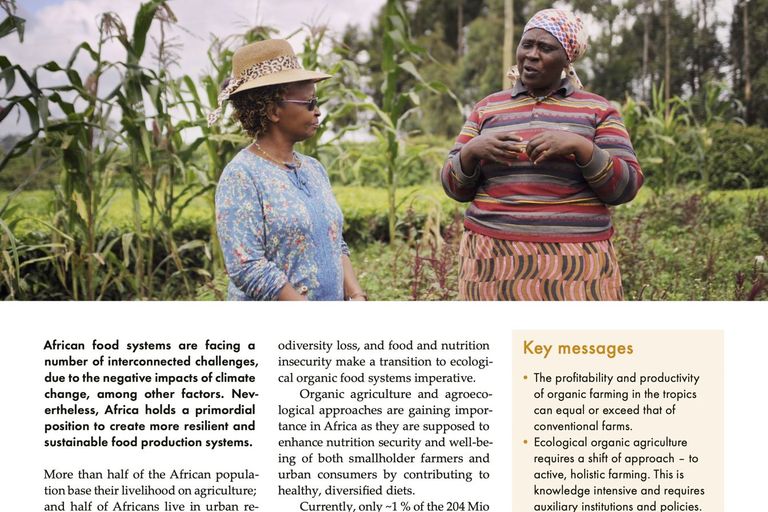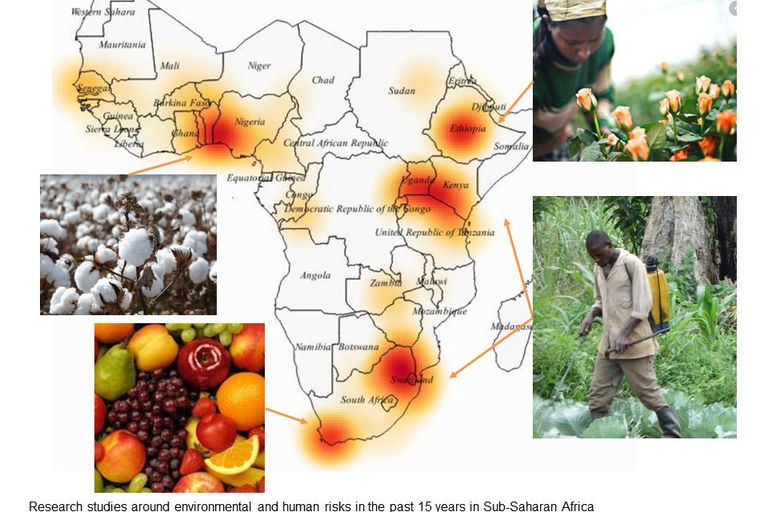Dazu gehört

Advancing ecological organic agriculture in Africa
African food systems are facing a number of interconnected challenges, due to the negative impacts of climate change, among other factors. Nev ertheless, Africa holds a primordial position to create more resilient and sustainable food production systems.

Interventions to Reduce Pesticide Exposure from Agriculture Sector in Africa
The SwissTPH online workshop aims to discuss recent research about interventions to reduce pesticide exposure from agriculture sector in Africa.

«Die Schweiz hätte jetzt die Chance, eine Ernährungspolitik zu verfassen»
Im CDE Interview stellt Johanna Jacobi Erkenntnisse aus der Nord-Süd Forschung in Bezug zur Schweiz und zeigt, wie Landwirtschaft zu nachhaltiger Entwicklung beitragen kann und was sich dafür auch in der Schweiz ändern müsste.
Bild: Foto: CDEVielfalt ist die Quelle des Lebens
Jahrtausendelang wurde die Ernährungssicherheit und Widerstandsfähigkeit des Menschen durch Tausende von Kulturpflanzensorten, Dutzenden von Haustierarten sowie durch die nicht direkt genutzte Biodiversität, gewährleistet. Die starke Ausweitung der agroindustriellen Landwirtschaft führte zu globalen, standardisierten Nahrungssystemen. Damit einher ginge eine drastische Verringerung der Vielfalt von Pflanzensorten und Tierrassen in der Landwirtschaft. Heute liefern nur drei Pflanzenarten die Hälfte aller pflanzlichen Nahrungskalorien, und nur vier Tierarten sind an der Produktion des Grossteils der globalen Fleischversorgung beteiligt. Die Wiederherstellung der Agrobiodiversität – die Vielfalt dessen, was wir anbauen, züchten, konsumieren und in freier Wildbahn erhalten – ist von entscheidender Bedeutung, um widerstandsfähige Nahrungssysteme vor dem Hintergrund des Klimawandels sicherzustellen. Dabei gilt es, den «Hütern der Agrobiodiversität» - die rund 500 Millionen kleinen Landwirtschafts- betrieben auf der ganzen Welt, vor allem im globalen Süden - den Lebensunterhalt zu sichern. Dieses Faktenblatt beschreibt Ursachen und Folgen des Agrobiodiversitätsverlusts, und zeigt auf, welche Wege Politik und Forschung einschlagen könnten.
Bild: KFPE

